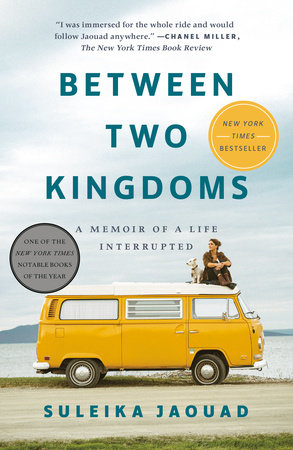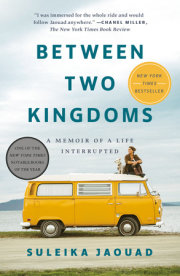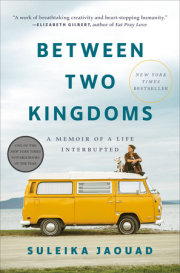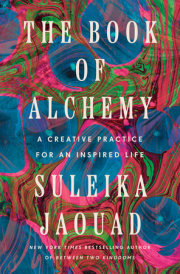1The ItchIt began with an itch. Not a metaphorical itch to travel the world or some quarter-life crisis, but a literal, physical itch. A maddening, claw-at-your-skin, keep-you-up-at-night itch that surfaced during my senior year of college, first on the tops of my feet and then moving up my calves and thighs. I tried to resist scratching, but the itch was relentless, spreading across the surface of my skin like a thousand invisible mosquito bites. Without realizing what I was doing, my hand began meandering down my legs, my nails raking my jeans in search of relief, before burrowing under the hem to sink directly into flesh. I itched during my part-time job at the campus film lab. I itched under the big wooden desk of my library carrel. I itched while dancing with friends on the beer-slicked floors of basement taprooms. I itched while I slept. A scree of oozing nicks, thick scabs, and fresh scars soon marred my legs as if they had been beaten with rose thistles. Bloody harbingers of a mounting struggle taking place inside of me.
“It might be a parasite you picked up while studying abroad,” a Chinese herbalist told me before sending me off with foul-smelling supplements and bitter teas. A nurse at the college health center thought it might be eczema and recommended a cream. A general practitioner surmised that it was stress related and gave me samples of an antianxiety medication. But no one seemed to know for sure, so I tried not to make a big deal out of it. I hoped it would clear up on its own.
Every morning, I would crack the door of my dorm room, scan the hall, and sprint in my towel to the communal bathroom before anyone could see my limbs. I washed my skin with a wet cloth, watching the crimson streaks swirl down the shower drain. I slathered myself in drugstore potions made of witch hazel tonic and I plugged my nose as I drank the bitter tea concoctions. Once the weather turned too warm to wear jeans every day, I invested in a collection of opaque black tights. I purchased dark-colored sheets to mask the rusty stains. And when I had sex, I had sex with the lights off.
Along with the itch came the naps. The naps that lasted two, then four, then six hours. No amount of sleep seemed to appease my body. I began dozing through orchestra rehearsals and job interviews, deadlines and dinner, only to wake up feeling even more depleted. “I’ve never felt so tired in my life,” I confessed to my friends one day, as we were walking to class. “Me too, me too,” they commiserated. Everyone was tired. We’d witnessed more sunrises in the last semester than we had in our entire lives, a combination of logging long hours at the library to finish our senior theses followed by boozy parties that raged until dawn. I lived at the heart of the Princeton campus, on the top floor of a Gothic-style dorm, crested with turrets and grimacing gargoyles. At the end of yet another late night, my friends would congregate in my room for one last nightcap. My room had big cathedral windows and we liked to sit on the sills with our legs dangling over the edge, watching as drunken revelers stumbled home and the first amber rays streaked the stone-paved courtyard. Graduation was on the horizon, and we were determined to savor these final weeks together before we all scattered, even if that meant pushing our bodies to their limits.
And yet, I worried my fatigue was different.
Alone in my bed, after everyone had gone, I sensed a feasting taking place under my skin, something wending its way through my arteries, gnawing at my sanity. As my energy evaporated and the itch intensified, I told myself it was because the parasite’s appetite was growing. But deep down, I doubted there ever was a parasite. I began to wonder if the real problem was me.
In the months that followed, I felt at sea, close to sinking, grasping at anything that might buoy me. For a while I managed. I graduated, then joined my classmates in the mass exodus to New York City. I found an ad on Craigslist for a spare bedroom in a large, floor-through loft located above an art supply store on Canal Street. It was the summer of 2010 and a heat wave had sucked the oxygen out of the city. As I emerged from the subway, the stench of festering garbage smacked me in the face. Commuters and hordes of tourists shopping for knockoff designer bags jostled each other on the sidewalks. The apartment was a third-floor walk-up and by the time I lugged my suitcase to the front door, sweat had turned my white tank top see-through. I introduced myself to my new roommates; there were nine of them. They were all in their twenties and aspiring something-or-others: three actors, two models, a chef, a jewelry designer, a graduate student, and a financial analyst. Eight hundred dollars a month bought each of us our own windowless cave partitioned by paper-thin drywall that a slumlord had erected to get the most bang for his buck.
I had scored a summer internship at the Center for Constitutional Rights, and when I showed up on my first day, I felt awed to be in the same room as some of the most fearless civil liberties lawyers in the country. The work felt important, but the internship was unpaid and living in New York City was like walking around with a giant hole in my wallet. I quickly blew through the two thousand dollars I’d saved up over the school year. Even with the babysitting and restaurant jobs I worked in the evenings, I was barely scraping by.
Imagining my future—expansive yet empty—filled me with terror. In moments when I allowed myself to daydream, it thrilled me, too. The possibilities of who I might become and where I might land felt infinite, a spool of ribbon unfurling far beyond what my mind’s eye could see. I envisioned a career as a foreign correspondent in North Africa, where my dad is from and where I’d lived for a stint as a kid. I also toyed with the idea of law school, which seemed like a more prudent route. Frankly, I needed money. I had only been able to attend an Ivy League college because I’d received a full scholarship. But out here, in the real world, I didn’t have the same kind of safety nets—trust funds, family connections, six-figure jobs on Wall Street—as many of my classmates.
It was easier to fret about the uncertainty ahead than to confront another, even more unsettling shift. During my last semester, to combat the fatigue, I had chugged caffeinated energy drinks. When those stopped working, a boy I’d briefly dated gave me some of his Adderall to survive finals. But soon that wasn’t enough either. Cocaine was a party staple in my circle of friends, and there were always guys hanging around who offered a line here and there for free. Nobody batted an eye when I started partaking. My roommates in the Canal Street loft had turned out to be hard-partying types, too. I began to take uppers the way some people add an extra shot of espresso to their coffee—a means to an end, a way to stave off my deepening exhaustion. In my journal, I wrote: Stay afloat.
By the last days of summer, I struggled to recognize myself. The muffled sound of my alarm clock dragged like a dull knife through dreamless sleep. Each morning, I’d stumble out of bed and stand in front of the floor-length mirror, taking inventory of the damage. Scratches and streaks of drying blood covered my legs in new places. My hair hung to my waist in dull, chaotic waves that I was too tired to brush. Shadowy crescents deepened into dark moons under big bloodshot eyes. Too burned-out to face sunlight, I started showing up later and later to my internship; then, one day, I stopped showing up altogether.
I disliked the person I was becoming—a person who tumbled headfirst into each day, in constant motion but without any sense of direction; a person who reconstructed blackouts, night after night, like some private investigator; a person who constantly reneged on commitments; a person who was too embarrassed to pick up her parents’ phone calls. This isn’t me, I thought, staring at my reflection with disgust. I needed to clean up my act. I needed to find a real job, one that paid. I needed some distance from my college crew and my Canal Street roommates. I needed to get the hell out of New York City, and soon.
On an August morning, a few days after I quit the internship, I rose early and took my laptop out to the fire escape and started searching for jobs. It had been a rainless summer, and the sun blazed, baking my skin to a tan, leaving little white dots like braille all over my legs where the scratching had scarred. A position for a paralegal at an American law firm in Paris caught my eye, and on a whim I decided to apply. I spent all day working on my cover letter. I made sure to mention that French was my first language and that I spoke some Arabic, too, hoping for a competitive edge. Being a paralegal wasn’t my ideal job—I didn’t even really know what it entailed—but it seemed like the kind of thing a sensible person might do. Mostly, I thought that a change of scenery could save me from my increasingly reckless behavior. Moving to Paris wasn’t a bucket list item: it was my escape plan.
Copyright © 2021 by Suleika Jaouad. All rights reserved. No part of this excerpt may be reproduced or reprinted without permission in writing from the publisher.










